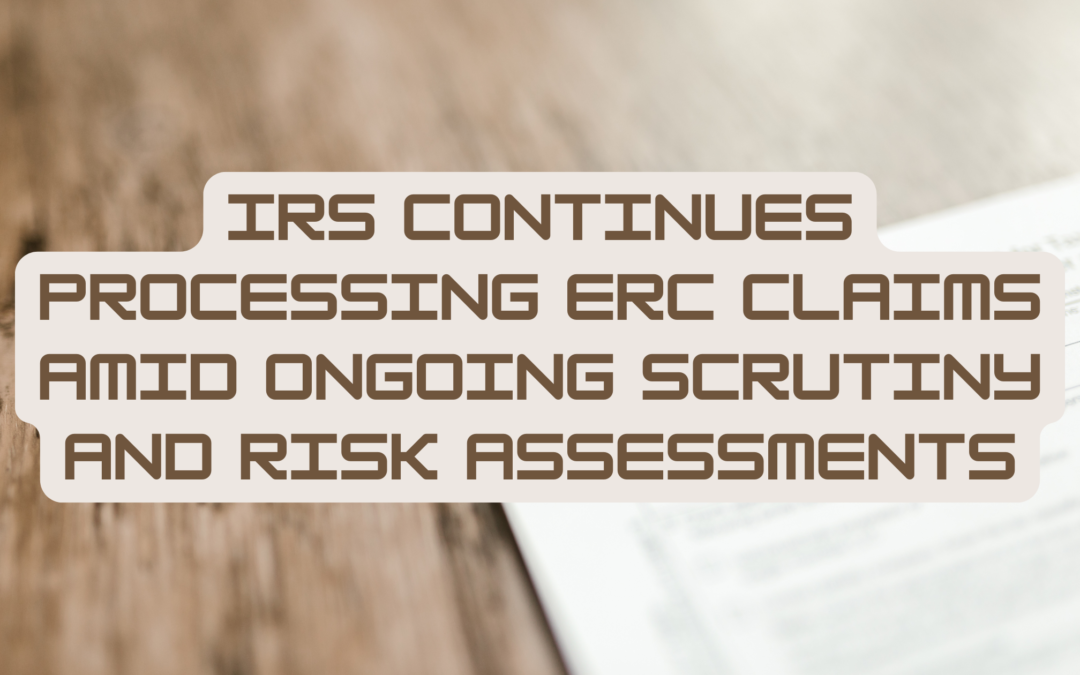Did you file an Employee Retention Tax Credit Claim after September 14, 2023? Have you been waiting to find out if your claim will be processed?
The IRS stopped processing (ERC) claims that were received before the moratorium on September 14, 2023, to enhance their systems to verify information submitted was valid. Even with the moratorium, a significant number of forms continued to be sent to the IRS.
Now that the moratorium has been lifted and the IRS is once again processing claims, there has been a denial rate of about one-third. Through their analysis, the IRS has identified that 10-20% of claims are high-risk, 60-70% are medium-risk, and only 10-20% are low-risk, with processing beginning on the oldest low-risk claims.
The IRS closed its voluntary disclosure program in May 2024, in which 2,600 applications involved over $1 billion. However, the IRS currently has the second Employee Retention Credit Voluntary Disclosure Program in place for 2021 claims filed. If you now believe the claims you filed are inaccurate, be sure to use this program to allow you to rescind your filing and pay back 85% of the credit received without penalty.
The IRS is conducting audits on thousands of ERC filings, including criminal investigations into fraudulent claims. Although taxpayers must wait for the IRS to process their claims, they can prepare by gathering necessary documentation in case of denials.
A few people have reached out to me to ask about denial letters they received. It appears the IRS is verifying if government shutdown orders were in place for quarters claimed for the locations submitted. If they find there were none, they deny the claims. However, the clients who reached out to me for clarification had submitted for a reduction of revenue, not a shutdown, and do qualify for that quarter. I gave them information on what they could do to appeal the denial.
So, if you are denied, but you do have a valid claim, be sure to submit an appeal and provide supporting documentation. The IRS is doing its best to prevent fraud, but you don’t want to lose out on funds you do qualify for if they make a mistake. It can be daunting to deal with the IRS, but if you have a valid claim, don’t stop pursuing it.
